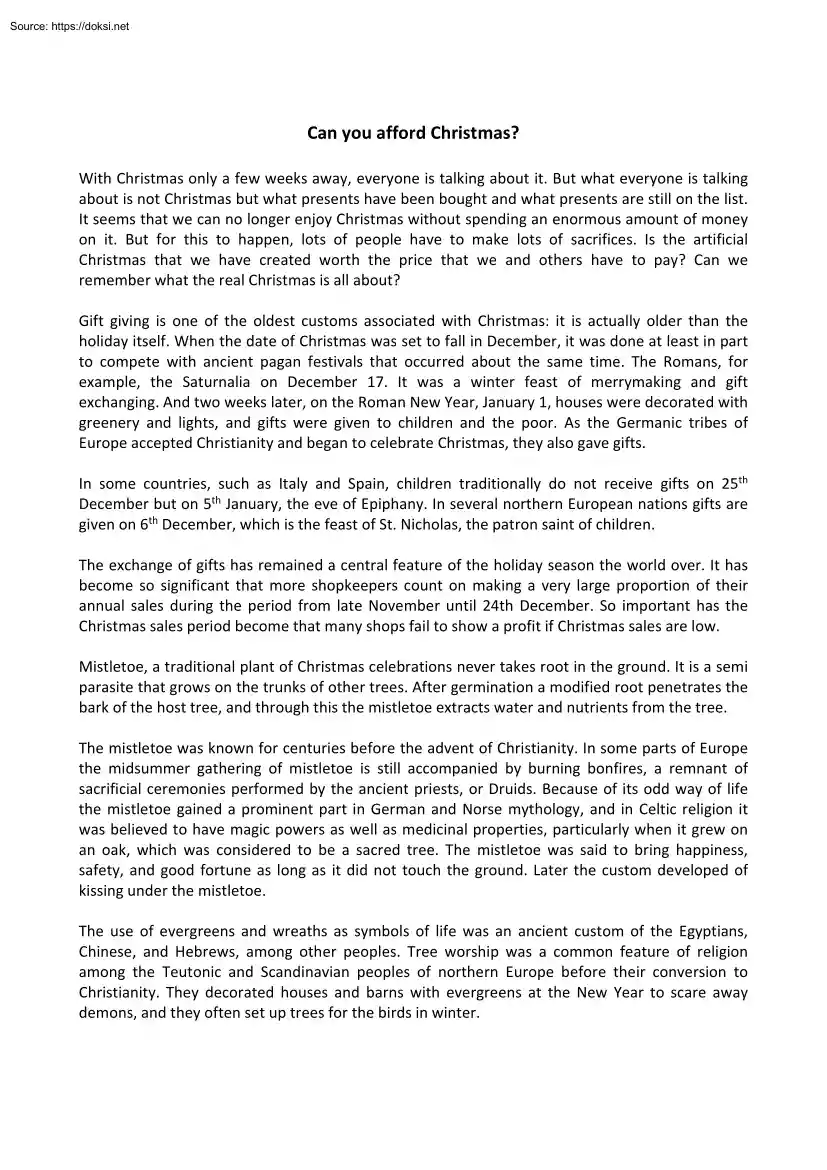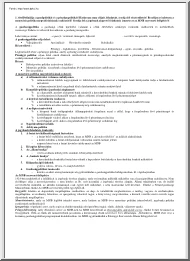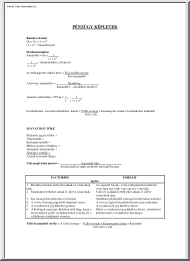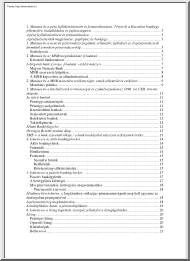Alapadatok
Év, oldalszám:2013, 4 oldal
Nyelv:angol
Letöltések száma:4
Feltöltve:2021. december 02.
Méret:695 KB
Intézmény:
-
Megjegyzés:
Csatolmány:-
Letöltés PDF-ben:Kérlek jelentkezz be!
Értékelések
Nincs még értékelés. Legyél Te az első!Legnépszerűbb doksik ebben a kategóriában
Tartalmi kivonat
Can you afford Christmas? With Christmas only a few weeks away, everyone is talking about it. But what everyone is talking about is not Christmas but what presents have been bought and what presents are still on the list. It seems that we can no longer enjoy Christmas without spending an enormous amount of money on it. But for this to happen, lots of people have to make lots of sacrifices Is the artificial Christmas that we have created worth the price that we and others have to pay? Can we remember what the real Christmas is all about? Gift giving is one of the oldest customs associated with Christmas: it is actually older than the holiday itself. When the date of Christmas was set to fall in December, it was done at least in part to compete with ancient pagan festivals that occurred about the same time. The Romans, for example, the Saturnalia on December 17. It was a winter feast of merrymaking and gift exchanging. And two weeks later, on the Roman New Year, January 1, houses were
decorated with greenery and lights, and gifts were given to children and the poor. As the Germanic tribes of Europe accepted Christianity and began to celebrate Christmas, they also gave gifts. In some countries, such as Italy and Spain, children traditionally do not receive gifts on 25th December but on 5th January, the eve of Epiphany. In several northern European nations gifts are given on 6th December, which is the feast of St. Nicholas, the patron saint of children The exchange of gifts has remained a central feature of the holiday season the world over. It has become so significant that more shopkeepers count on making a very large proportion of their annual sales during the period from late November until 24th December. So important has the Christmas sales period become that many shops fail to show a profit if Christmas sales are low. Mistletoe, a traditional plant of Christmas celebrations never takes root in the ground. It is a semi parasite that grows on the trunks of other
trees. After germination a modified root penetrates the bark of the host tree, and through this the mistletoe extracts water and nutrients from the tree. The mistletoe was known for centuries before the advent of Christianity. In some parts of Europe the midsummer gathering of mistletoe is still accompanied by burning bonfires, a remnant of sacrificial ceremonies performed by the ancient priests, or Druids. Because of its odd way of life the mistletoe gained a prominent part in German and Norse mythology, and in Celtic religion it was believed to have magic powers as well as medicinal properties, particularly when it grew on an oak, which was considered to be a sacred tree. The mistletoe was said to bring happiness, safety, and good fortune as long as it did not touch the ground. Later the custom developed of kissing under the mistletoe. The use of evergreens and wreaths as symbols of life was an ancient custom of the Egyptians, Chinese, and Hebrews, among other peoples. Tree worship
was a common feature of religion among the Teutonic and Scandinavian peoples of northern Europe before their conversion to Christianity. They decorated houses and barns with evergreens at the New Year to scare away demons, and they often set up trees for the birds in winter. The Christmas tree was introduced in England early in the 19th century, and it was popularized by Prince Albert, the German husband of Queen Victoria. The trees were decorated with candles, candies, paper chains, and fancy cakes that were hung from the branches on ribbons. Enquiry See • • • • • • When do you start preparing for Christmas? How do you prepare? How much money will you spend this Christmas? - On others? - On yourself? How much money will your family spend this Christmas? - On others? - on themselves? What sacrifices do people make at Christmas? Compile a list of what makes Christmas special for you? What does this list say about you as a person? What pressures are we under at
Christmas? Judge • Consider the following quote: “The first will be last and the last will be first” • How much will we put ourselves first this Christmas? • Consider the following quote: “Money is an article which may be used as a universal passport to everywhere except heaven, and is a universal provider of everything except happiness.” Wall Street Journal • How important is money at Christmas? • Do the things that cost the most bring the most enjoyment? • Given that most of the presents we give and receive at Christmas are not made in this country, in terms of money, who gains and who loses? Act • • What facts have arisen from the enquiry which we need to take action on? Who will be responsible for this? (taken from Real Life 1996). Impact Issue sheet “Can you afford Christmas?” With Christmas only a few weeks away, everyone is talking about it. But what everyone is talking about is not Christmas but what presents have been bought and what
presents are still on the list. It seems that we can no longer enjoy Christmas unless we spend vast amounts of money. But for that to happen, lots of people have to make lots of sacrifices. Is the artificial Christmas that we have created worth the price that we and others have to pay? Can we remember what the real Christmas is about? Facts about Christmas The Epiphany is a prime Christmas feast, celebrated on 6th January. It is sometimes known as Twelfth Day or Little Christmas. It commemorates the baptism of Jesus, the visit of the Wise Men to Bethlehem, and the miracle of Cana. Its eve is Twelfth Night Christmas. The word comes from the Old English term Cristes maesse, meaning “Christ’s mass” This was the name for the festival service of worship held on 25th December to commemorate the birth of Jesus Christ. Cribs. This is the custom of having a small model of the stable where Jesus was born, containing figures of Mary, Joseph, the infant, shepherds, and the wise men. The
custom is said to have been started by St Francis of Assisi. On a Christmas Eve in 1224 he is supposed to have set up a stable in the corner of a church in his native village with real persons and animals to represent those of the first Christmas. The legend of jolly old Santa Claus began with a real person, St Nicholas, who lived during the 4th century in Lycia. The first drawing of him that resembles today’s Santa Claus was a cartoon by Thomas Nast that appeared in Harper’s Weekly in 1866. Gift giving is one of the oldest customs associated with Christmas: it is actually older than the holiday itself. When the date of Christmas was set to fall in December, it was done at least in part to compete with ancient pagan festivals that occurred about the same time. The Romans, for example, celebrated the Saturnalia on December 17. It was a winter feast of merrymaking and gift exchanging. January 1, houses were decorated with greenery and lights, and gifts were given to children and the
poor. As the Germanic tribes of Europe accepted Christianity and began to celebrate Christmas, they also gave gifts. The exchange of gifts has remained a central feature of the holiday season the world over. It has become so significant that most shopkeepers count on making a very large proportion of their annual sales during the period from late November until 24th December. So important has the Christmas sales period become that many shops fail to show a profit if Christmas sales are low. The Christmas tree was introduced into England early in the 19th century, and it was popularised by Prince Albert, the German husband of Queen Victoria. The trees were decorated with candles, candies, paper chains, and fancy cakes that were hung from the branches on ribbons. Mistletoe, a tradition plant of Christmas celebrations never takes root in the ground. It is a semiparasite that grows on the trunks of other trees After germination a modified root penetrates the bark of the host tree, and
through this the mistletoe extracts water and nutrients from the tree. Discussion Plan See • When do you start preparing for Christmas? How do you prepare? • How much money will you spend this Christmas? - On others? - On yourself? • How much money will your family spend this Christmas? - On others? - on themselves? • What sacrifices do people make at Christmas? • Compile a list of what makes Christmas special for you? What does this list say about you as a person? • What pressures are we under at Christmas? Judge • Consider the following quote: “The first will be last and the last will be first” • How much will we put ourselves first this Christmas? • Consider the following quote: “Money is an article which may be used as a universal passport to everywhere except heaven, and is a universal provider of everything except happiness.” Wall Street Journal • How important is money at Christmas? • Do the things that cost the most bring the most enjoyment?
• Given that most of the presents we give and receive at Christmas are not made in this country, in terms of money, who gains and who loses? Act • • What facts have arisen from the enquiry which we need to take action on? Who will be responsible for this? Action station • Give time to others this Christmas by: visiting someone who is on their own, volunteering to help a charity, making an extra effort to help out at home. • Use your talents to make Christmas special for others. • Take the emphasis away from money this Christmas by: making your own Christmas cards and presents, giving fairly traded presents (so that everyone’s a winner!) or donate what you would normally spend on presents to a worthwhile cause
decorated with greenery and lights, and gifts were given to children and the poor. As the Germanic tribes of Europe accepted Christianity and began to celebrate Christmas, they also gave gifts. In some countries, such as Italy and Spain, children traditionally do not receive gifts on 25th December but on 5th January, the eve of Epiphany. In several northern European nations gifts are given on 6th December, which is the feast of St. Nicholas, the patron saint of children The exchange of gifts has remained a central feature of the holiday season the world over. It has become so significant that more shopkeepers count on making a very large proportion of their annual sales during the period from late November until 24th December. So important has the Christmas sales period become that many shops fail to show a profit if Christmas sales are low. Mistletoe, a traditional plant of Christmas celebrations never takes root in the ground. It is a semi parasite that grows on the trunks of other
trees. After germination a modified root penetrates the bark of the host tree, and through this the mistletoe extracts water and nutrients from the tree. The mistletoe was known for centuries before the advent of Christianity. In some parts of Europe the midsummer gathering of mistletoe is still accompanied by burning bonfires, a remnant of sacrificial ceremonies performed by the ancient priests, or Druids. Because of its odd way of life the mistletoe gained a prominent part in German and Norse mythology, and in Celtic religion it was believed to have magic powers as well as medicinal properties, particularly when it grew on an oak, which was considered to be a sacred tree. The mistletoe was said to bring happiness, safety, and good fortune as long as it did not touch the ground. Later the custom developed of kissing under the mistletoe. The use of evergreens and wreaths as symbols of life was an ancient custom of the Egyptians, Chinese, and Hebrews, among other peoples. Tree worship
was a common feature of religion among the Teutonic and Scandinavian peoples of northern Europe before their conversion to Christianity. They decorated houses and barns with evergreens at the New Year to scare away demons, and they often set up trees for the birds in winter. The Christmas tree was introduced in England early in the 19th century, and it was popularized by Prince Albert, the German husband of Queen Victoria. The trees were decorated with candles, candies, paper chains, and fancy cakes that were hung from the branches on ribbons. Enquiry See • • • • • • When do you start preparing for Christmas? How do you prepare? How much money will you spend this Christmas? - On others? - On yourself? How much money will your family spend this Christmas? - On others? - on themselves? What sacrifices do people make at Christmas? Compile a list of what makes Christmas special for you? What does this list say about you as a person? What pressures are we under at
Christmas? Judge • Consider the following quote: “The first will be last and the last will be first” • How much will we put ourselves first this Christmas? • Consider the following quote: “Money is an article which may be used as a universal passport to everywhere except heaven, and is a universal provider of everything except happiness.” Wall Street Journal • How important is money at Christmas? • Do the things that cost the most bring the most enjoyment? • Given that most of the presents we give and receive at Christmas are not made in this country, in terms of money, who gains and who loses? Act • • What facts have arisen from the enquiry which we need to take action on? Who will be responsible for this? (taken from Real Life 1996). Impact Issue sheet “Can you afford Christmas?” With Christmas only a few weeks away, everyone is talking about it. But what everyone is talking about is not Christmas but what presents have been bought and what
presents are still on the list. It seems that we can no longer enjoy Christmas unless we spend vast amounts of money. But for that to happen, lots of people have to make lots of sacrifices. Is the artificial Christmas that we have created worth the price that we and others have to pay? Can we remember what the real Christmas is about? Facts about Christmas The Epiphany is a prime Christmas feast, celebrated on 6th January. It is sometimes known as Twelfth Day or Little Christmas. It commemorates the baptism of Jesus, the visit of the Wise Men to Bethlehem, and the miracle of Cana. Its eve is Twelfth Night Christmas. The word comes from the Old English term Cristes maesse, meaning “Christ’s mass” This was the name for the festival service of worship held on 25th December to commemorate the birth of Jesus Christ. Cribs. This is the custom of having a small model of the stable where Jesus was born, containing figures of Mary, Joseph, the infant, shepherds, and the wise men. The
custom is said to have been started by St Francis of Assisi. On a Christmas Eve in 1224 he is supposed to have set up a stable in the corner of a church in his native village with real persons and animals to represent those of the first Christmas. The legend of jolly old Santa Claus began with a real person, St Nicholas, who lived during the 4th century in Lycia. The first drawing of him that resembles today’s Santa Claus was a cartoon by Thomas Nast that appeared in Harper’s Weekly in 1866. Gift giving is one of the oldest customs associated with Christmas: it is actually older than the holiday itself. When the date of Christmas was set to fall in December, it was done at least in part to compete with ancient pagan festivals that occurred about the same time. The Romans, for example, celebrated the Saturnalia on December 17. It was a winter feast of merrymaking and gift exchanging. January 1, houses were decorated with greenery and lights, and gifts were given to children and the
poor. As the Germanic tribes of Europe accepted Christianity and began to celebrate Christmas, they also gave gifts. The exchange of gifts has remained a central feature of the holiday season the world over. It has become so significant that most shopkeepers count on making a very large proportion of their annual sales during the period from late November until 24th December. So important has the Christmas sales period become that many shops fail to show a profit if Christmas sales are low. The Christmas tree was introduced into England early in the 19th century, and it was popularised by Prince Albert, the German husband of Queen Victoria. The trees were decorated with candles, candies, paper chains, and fancy cakes that were hung from the branches on ribbons. Mistletoe, a tradition plant of Christmas celebrations never takes root in the ground. It is a semiparasite that grows on the trunks of other trees After germination a modified root penetrates the bark of the host tree, and
through this the mistletoe extracts water and nutrients from the tree. Discussion Plan See • When do you start preparing for Christmas? How do you prepare? • How much money will you spend this Christmas? - On others? - On yourself? • How much money will your family spend this Christmas? - On others? - on themselves? • What sacrifices do people make at Christmas? • Compile a list of what makes Christmas special for you? What does this list say about you as a person? • What pressures are we under at Christmas? Judge • Consider the following quote: “The first will be last and the last will be first” • How much will we put ourselves first this Christmas? • Consider the following quote: “Money is an article which may be used as a universal passport to everywhere except heaven, and is a universal provider of everything except happiness.” Wall Street Journal • How important is money at Christmas? • Do the things that cost the most bring the most enjoyment?
• Given that most of the presents we give and receive at Christmas are not made in this country, in terms of money, who gains and who loses? Act • • What facts have arisen from the enquiry which we need to take action on? Who will be responsible for this? Action station • Give time to others this Christmas by: visiting someone who is on their own, volunteering to help a charity, making an extra effort to help out at home. • Use your talents to make Christmas special for others. • Take the emphasis away from money this Christmas by: making your own Christmas cards and presents, giving fairly traded presents (so that everyone’s a winner!) or donate what you would normally spend on presents to a worthwhile cause





 Megmutatjuk, hogyan lehet hatékonyan tanulni az iskolában, illetve otthon. Áttekintjük, hogy milyen a jó jegyzet tartalmi, terjedelmi és formai szempontok szerint egyaránt. Végül pedig tippeket adunk a vizsga előtti tanulással kapcsolatban, hogy ne feltétlenül kelljen beleőszülni a felkészülésbe.
Megmutatjuk, hogyan lehet hatékonyan tanulni az iskolában, illetve otthon. Áttekintjük, hogy milyen a jó jegyzet tartalmi, terjedelmi és formai szempontok szerint egyaránt. Végül pedig tippeket adunk a vizsga előtti tanulással kapcsolatban, hogy ne feltétlenül kelljen beleőszülni a felkészülésbe.